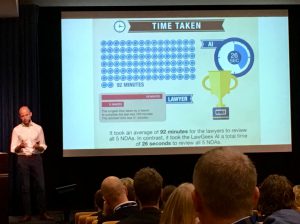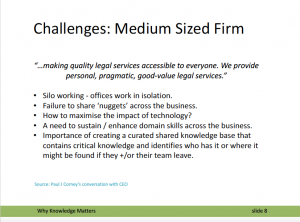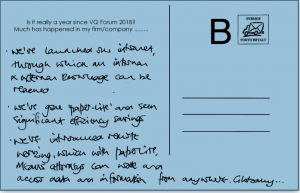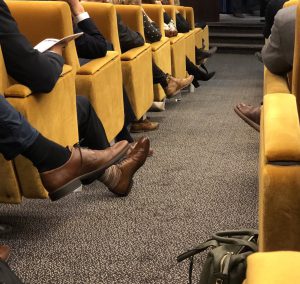Take a good look at this 500 Krone note. In 2 years time you are unlikely to see one. Sweden is going cashless which makes you wonder what will happen to the cash machines. I found out about this evolving policy by chance having withdrawn Skr !,500, enough I thought to pay for taxis and a few snacks. My first attempt at using cash was to settle the taxi fare on my way to a Masterclass. I discovered I could pay Kr 500 but no my driver didn’t have change (Kr 250). So on my walk back to the hotel I go to the Tourist Board to ask how to use the money in my pocket. Though keen to help they were unable to tell me the names of places that would take cash!
Sweden is going cashless which makes you wonder what will happen to the cash machines. I found out about this evolving policy by chance having withdrawn Skr !,500, enough I thought to pay for taxis and a few snacks. My first attempt at using cash was to settle the taxi fare on my way to a Masterclass. I discovered I could pay Kr 500 but no my driver didn’t have change (Kr 250). So on my walk back to the hotel I go to the Tourist Board to ask how to use the money in my pocket. Though keen to help they were unable to tell me the names of places that would take cash!
Undaunted on check out I got out my ‘spare’ cash to pay part of the hotel bill: “We are a cashless hotel” I was informed. I pointed out a potential issue for tourists or business people paying with a card. We will be charged a non sterling transaction fee. I was assured we wouldn’t. I was, £14 on a bill of £500. The technology is in place but the implementation process and how it impacts everyone is far from nailed down.
Which is a good segue to my observations from 3 days with the Legal Industry.
VQ Forum #9th edition
My visit began at this event which was a sell out. Very much set up to be “show & tell” it follows a similar format to many with a list of speakers comprising practitioners, vendors, and thought leaders.
I liked
- Two very insightful slides. Accuracy rates and time taken to produce. The justification for technology from Johan Eriksson of Google


- Andrew Arruda’s presentation, I tweeted:
@AndrewArruda showcasing Ross AI system. Initial observation: intelligent augmented search that generates coherent overview. “Coming of age of technology that’s been in the making for many years. We have what we need to train the system” - Loving the L’Oreal story from
@AndrewArruda. Old established company buys AI start up to help potential customers envisage what make up might look like on them.
Surprises
- No mention of augmented or virtual reality which some are experimenting with for training.
- “you can crowdsource Law”. Excellent initiative from Stockholm Treaty Lab
- That the predominant shoe colour was brown!
I would like to have heard
More dialogue and more interaction. The conference style set up mitigates against conversation. Even though there were three breaks for informal networking they were in the exhibitor areas with limited seating or breakout space. As the final exercise proved the demand was there!
The vendors (who were given a few minutes to introduce themselves before the recess they’d sponsored) use a story to illustrate what they do. It is not really helpful to tell people how many clients you had in 2016,17 and 18. And I don’t need to know when you were established.
quotes
Obsess about automating everything that can be automated to free our resources for more fun work!
“If you don’t automate your work you will be out of work”. So says Google. They would of course but in this case they are right.
We as
#Lawyers are not threatened by the new technologies, our ways of working will get less#robotic and digital solutions will enable us to concentrate the actual#expertise work.If law firms don’t innovate & disrupt the industry, their clients are likely to demand the disruption themselves. Modernisation from outside sources e.g. big banks.. that may be more tech-savvy
General Counsel asks “what can Law Firms do for me that I can’t do myself?”
A diversified customer base should mean diversified law firm management…but that’s not always the case
Change is painful, but the only way forward. Improving skills and determining your strategy is equally important as implementing technology
Fascinating: recruitment consultant confirms legal firms are looking for “humans”- people with soft skills who are good at collaborating.
The closing
 I began my address with this slide asking the question: “who do you want to be, the established beach hut painted in a different colour, or the new modern version that looks very different but may not be to everyone’s liking?”
I began my address with this slide asking the question: “who do you want to be, the established beach hut painted in a different colour, or the new modern version that looks very different but may not be to everyone’s liking?”
 I spoke about a recent conversation with the CEO of a firm looking to acheive rapid growth. I examined the challenges I thought they faced.
I spoke about a recent conversation with the CEO of a firm looking to acheive rapid growth. I examined the challenges I thought they faced.
I shared a number of postcards from the future provided by vendors and legal practitioners.
Here’s one example:  I closed the session by inviiting the audience to stand up and find someone they’d not met. I then asked them to look at the postcard in their pack and consider what their firm might look like one year on. I think it worked:
I closed the session by inviiting the audience to stand up and find someone they’d not met. I then asked them to look at the postcard in their pack and consider what their firm might look like one year on. I think it worked:
Thank you for your fantastic presentation at
#VQForum! And the postcard exercise was a true success!
A day with Legal Stockholm (and Goteborg / Helsinki)
Following the postiive response to the postcard session I was looking forward to spending the following day with 15 senior Scandinavian legal professionals focusing on the 8 Critical “ates of a “Knowledgeur”:
It had become apparant from preparatory conversaations with Carolina of Venge (the organisor) and at VQ Forum that many KIM professionals face challenges assoicated with “finding stuff”, getting senior management support and getting their organisations to work more collaboratively. It was one of the most enjoyable masterclasses I’ve run due to the willingness of the participants to engage from the start.
Here’s what some of their takeaways were:
- A new day of intense learning. Loads of new ideas. Thanks
@PaulJCorney for a great KM masterclass. Key take aways as of now. Focus – and a bit of back to basics (that might get lost in this tech era). Facilitating IS a critical skill. And the importance of a good elevator pitch. - The best take away was definitely the elevator pitch. I will also try to become a “knowledgeur”. I liked that title!
- Noted down back-to-basics and a new skill set (or more professional words for the skills anyway 😉). And the focus on facilitating and curating.
- What a great day! My take aways include the elevator pitch and the importance of onboarding new people. Great question: ”What will you miss most from your last work?”
- That you should put 30% of your time listening to co-workers and implementing by socializing. And to start the elevator pitch in a sentence that explains how the KMwork contribute to the bigger picture (vision, head strategy etc)
- Thank you! I liked the idea of GIVE >< TAKE – to ask people what skills and knowledge they bring, and not only what they expect to take away. So simple, but I’ve never thought about it before.
And finally
In the past i’ve spoken about the idea of Knowledge Matchmaking so I was delighted to be able to link up a couple of people who had similar interests / experiences.
I too was the beneficiary of an introduction via Ann Bjork one of the organisors to the Head of Stockholm’s Art Department with whom I had a most enjoyable breakfast discussing the city’s Urban Art programme before I left on Friday.
The previous evening I had dinner with a LinkedIn contact who I’d met at a previous event. We live in a connected world and have the ability to make the most of networks but it requires us to reach out in the first place!


